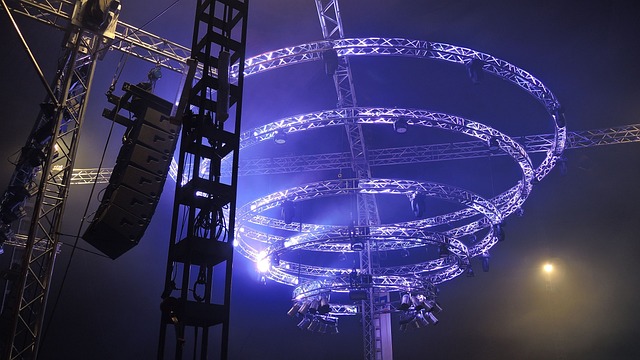Event planning for local businesses is essential for creating successful events that not only align with a company's strategic objectives but also enhance brand identity and customer engagement. Proficient event planners adeptly manage all aspects of event execution, from conceptualization to post-event analysis, ensuring each step reflects the business's ethos and market position. These professionals are skilled in identifying target demographics, designing customized experiences, securing venues, managing budgets, coordinating with vendors, and devising marketing strategies to guarantee a seamless event experience. Their work effectively bolsters local businesses by elevating their esteem within the community and fostering enduring customer loyalty, which can lead to business expansion. The strategic role of event planners in this context is crucial for delivering cohesive and impactful events that resonate with participants and contribute to a company's broader goals. By integrating marketing strategies with a deep understanding of local businesses' clientele, event planning professionals can create events that are both memorable and aligned with the business's vision, ultimately leaving a lasting impression on guests and enhancing the business's market stance.
Exploring the dynamic intersection of local commerce and event management, this article delves into the pivotal role of event planners in enhancing business engagements. We’ll navigate through the essential aspects of aligning these professionals with the unique needs of local businesses, from crafting bespoke events to forging enduring partnerships. Further, we’ll dissect effective marketing strategies tailored for event planning services, ensuring visibility and engagement within the community. With a focus on real-world success stories, the piece underscores the transformative impact of professional event planners in the realm of local business promotion and customer experience enrichment.
- Understanding the Role of Event Planners for Local Businesses
- Assessing the Needs of Local Business Events
- Building a Strong Relationship Between Event Planners and Local Businesses
- Marketing Strategies for Event Planning Services Targeting Local Businesses
- Case Studies: Successful Local Business Events Planned by Professionals
Understanding the Role of Event Planners for Local Businesses

Event planning is a dynamic and multifaceted role that local businesses increasingly rely on to execute successful events. These professionals are instrumental in bringing together various components of an event, from conceptualization to execution. They work closely with businesses to align the event’s objectives with the company’s brand and goals. By understanding the target audience and the desired outcomes, event planners for local businesses can tailor experiences that resonate with attendees while promoting the business’s products or services. Their expertise encompasses venue selection, vendor coordination, budget management, marketing strategies, and logistical planning to ensure every aspect of the event runs smoothly. This not only enhances the company’s reputation but also creates memorable experiences for participants, which can translate into increased customer loyalty and business growth. The role of an event planner is pivotal in creating a cohesive and impactful event experience that aligns with the local business’s vision and market position.
Assessing the Needs of Local Business Events

In the realm of local business events, event planners play a pivotal role in ensuring that each gathering aligns with the company’s objectives and resonates with its target audience. A thorough assessment of the event’s purpose is paramount; it determines the scale, scope, and style of the event. Planners must pinpoint the core objectives behind the event—whether it’s to launch a product, celebrate a milestone, or foster community engagement. Understanding the business’s brand identity, customer base, and marketing goals allows for tailored events that not only reflect the company’s ethos but also captivate attendees. Event Planning for Local Businesses involves a strategic approach, from selecting the right venue to crafting an agenda that facilitates networking, education, or entertainment as needed. By meticulously evaluating these factors, event planners can deliver experiences that elevate local businesses’ profiles and solidify their positions within the community.
Furthermore, successful local business events are a blend of creativity and precision. Event planners must consider logistical details such as budget constraints, vendor coordination, and scheduling conflicts while maintaining a focus on the thematic elements that will make the event memorable. Engaging themes and interactive activities can transform an ordinary gathering into an extraordinary experience. By integrating the business’s values and messaging seamlessly into the event design, planners can create opportunities for local businesses to leave a lasting impression on their guests. This level of customization and attention to detail is where the expertise of Event Planning for Local Businesses truly shines, ensuring that every aspect of the event serves the business’s overarching goals.
Building a Strong Relationship Between Event Planners and Local Businesses

Local businesses often rely on event planners to execute their marketing strategies and enhance community engagement through well-organized events. A strong partnership between these two entities can lead to mutually beneficial outcomes. Event planning for local businesses is not just about coordinating logistics; it’s about aligning the event’s goals with the business’s brand image and values. By establishing a robust relationship, event planners gain a deeper understanding of the business’s target audience and can tailor their services to meet specific needs. This familiarity allows them to offer personalized solutions that resonate with attendees, thereby amplifying the impact of each event. In return, local businesses receive professional expertise that elevates their events above mere transactions, fostering a sense of community and strengthening customer loyalty. The synergy created through this partnership not only enhances the quality of each event but also contributes to the long-term success and reputation of both the event planners and the local businesses they serve.
Marketing Strategies for Event Planning Services Targeting Local Businesses

Local businesses often seek event planning services to streamline their corporate events, from product launches to team retreats. To effectively market these services and attract such clients, event planners can leverage targeted strategies that resonate with the unique needs of local enterprises. A robust online presence through search engine optimization (SEO) ensures that event planning for local businesses appears prominently in local search results, capturing the attention of businesses looking to outsource their event management. Social media marketing, particularly on platforms frequented by business owners, can showcase a portfolio of successful events and client testimonials, building credibility and trust. Networking with local chambers of commerce, business associations, and professional groups provides opportunities for direct engagement and the exchange of referrals, fostering relationships that can lead to repeat business and a steady stream of event planning engagements. Additionally, offering customizable packages tailored to the specific goals and budgets of local businesses can differentiate an event planner’s services from competitors, emphasizing the value of professional event management in enhancing corporate events. By combining these targeted marketing strategies with a deep understanding of the local business landscape, event planners can position themselves as indispensable partners for organizations looking to host memorable and impactful events.
Case Studies: Successful Local Business Events Planned by Professionals

Local businesses across various sectors have recognized the value of professional event planning to enhance their brand visibility and customer engagement. A case in point is the annual craft fair organized by a small but thriving local home goods store. By enlisting the expertise of an event planner, the store transformed a simple display of products into a full-fledged showcase, complete with live demonstrations, workshops, and interactive booths. This strategic approach not only attracted a wider audience but also created a memorable experience that solidified customer loyalty. Similarly, a community-focused restaurant successfully leveraged event planning services to host a month-long series of events celebrating local cuisine. These events were meticulously planned to highlight regional specialties, feature guest chefs, and include themed dinner nights, significantly boosting the restaurant’s reputation as a culinary destination within the community. Both cases underscore the transformative impact of professional event planning for local businesses, demonstrating how well-orchestrated events can lead to heightened brand presence, increased customer engagement, and sustained business growth.
Local businesses looking to elevate their event execution can greatly benefit from the expertise of skilled event planners. By understanding the nuanced role these professionals play, assessing the unique needs of their events, and fostering robust relationships with them, businesses can ensure memorable and impactful gatherings that serve their objectives. Marketing strategies tailored to promote event planning services specifically to local businesses are key in this endeavor. The case studies presented highlight the tangible successes achieved through such collaborations, underscoring the value of professional event planning for local businesses. As businesses continue to recognize the importance of well-planned events for brand growth and customer engagement, partnering with experienced event planners will undoubtedly become an integral part of their strategic planning.






